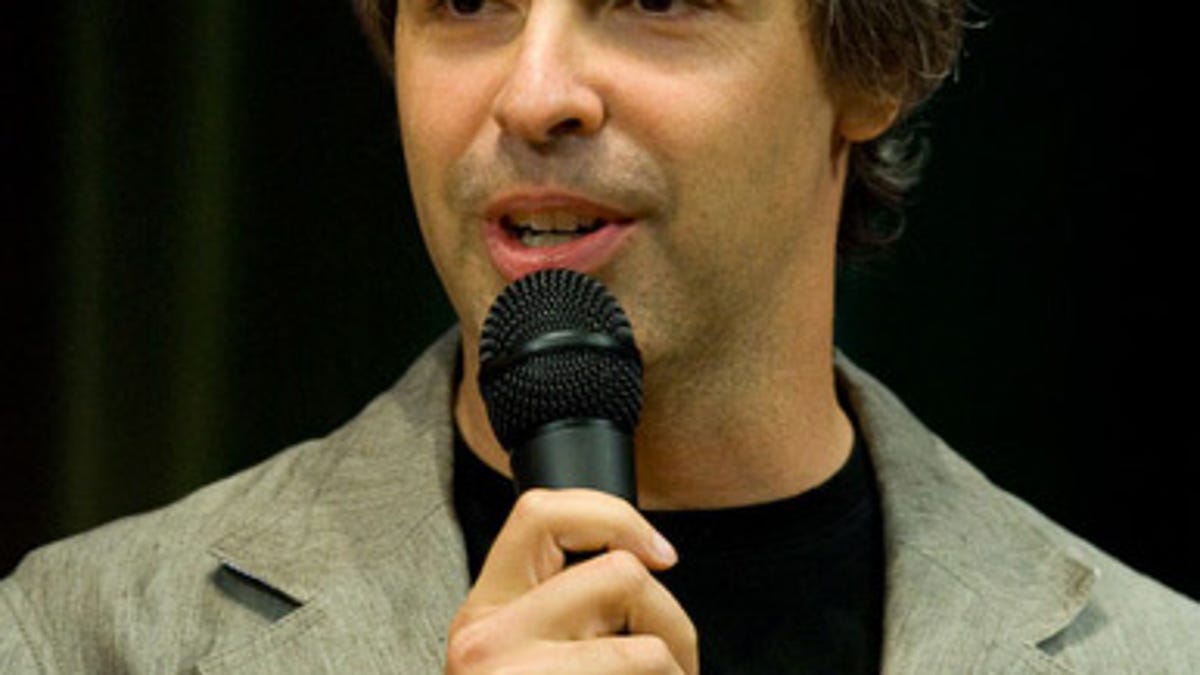Google's Page explains Motorola acquisition
Larry Page evidently is willing to make bold, expensive moves to protect Android from patent attacks. Here's how he explains the acquisition.

Google plans to buy Motorola Mobility for $12.5 billion, the search giant announced today, showing that new Chief Executive Larry Page is willing to make big moves and risk upsetting Android partners that compete with Motorola.
The move also shows that Page is taking the patent threat to the Android operating system very seriously.
Below is the full text of Page's blog post about the acquisition.
Supercharging Android: Google to Acquire Motorola Mobility
8/15/2011 04:35:00 AM [PT]
Since its launch in November 2007, Android has not only dramatically increased consumer choice but also improved the entire mobile experience for users. Today, more than 150 million Android devices have been activated worldwide--with over 550,000 devices now lit up every day--through a network of about 39 manufacturers and 231 carriers in 123 countries. Given Android's phenomenal success, we are always looking for new ways to supercharge the Android ecosystem. That is why I am so excited today to announce that we have agreed to acquire Motorola.
Motorola has a history of over 80 years of innovation in communications technology and products, and in the development of intellectual property, which have helped drive the remarkable revolution in mobile computing we are all enjoying today. Its many industry milestones include the introduction of the world's first portable cell phone nearly 30 years ago, and the StarTAC--the smallest and lightest phone on earth at time of launch. In 2007, Motorola was a founding member of the Open Handset Alliance that worked to make Android the first truly open and comprehensive platform for mobile devices. I have loved my Motorola phones from the StarTAC era up to the current DROIDs.
Related stories:
• Full coverage of Google's Motorola acquisition, from CNET and its sister sites
In 2008, Motorola bet big on Android as the sole operating system across all of its smartphone devices. It was a smart bet and we're thrilled at the success they've achieved so far. We believe that their mobile business is on an upward trajectory and poised for explosive growth.
Motorola is also a market leader in the home devices and video solutions business. With the transition to Internet Protocol, we are excited to work together with Motorola and the industry to support our partners and cooperate with them to accelerate innovation in this space.
Motorola's total commitment to Android in mobile devices is one of many reasons that there is a natural fit between our two companies. Together, we will create amazing user experiences that supercharge the entire Android ecosystem for the benefit of consumers, partners and developers everywhere.
This acquisition will not change our commitment to run Android as an open platform. Motorola will remain a licensee of Android and Android will remain open. We will run Motorola as a separate business. Many hardware partners have contributed to Android's success and we look forward to continuing to work with all of them to deliver outstanding user experiences.
We recently explained how companies including Microsoft and Apple are banding together in anti-competitive patent attacks on Android. The U.S. Department of Justice had to intervene in the results of one recent patent auction to "protect competition and innovation in the open source software community" and it is currently looking into the results of the Nortel auction. Our acquisition of Motorola will increase competition by strengthening Google's patent portfolio, which will enable us to better protect Android from anti-competitive threats from Microsoft, Apple and other companies.
The combination of Google and Motorola will not only supercharge Android, but will also enhance competition and offer consumers accelerating innovation, greater choice, and wonderful user experiences. I am confident that these great experiences will create huge value for shareholders.
I look forward to welcoming Motorolans to our family of Googlers.
Posted by Larry Page, CEO

